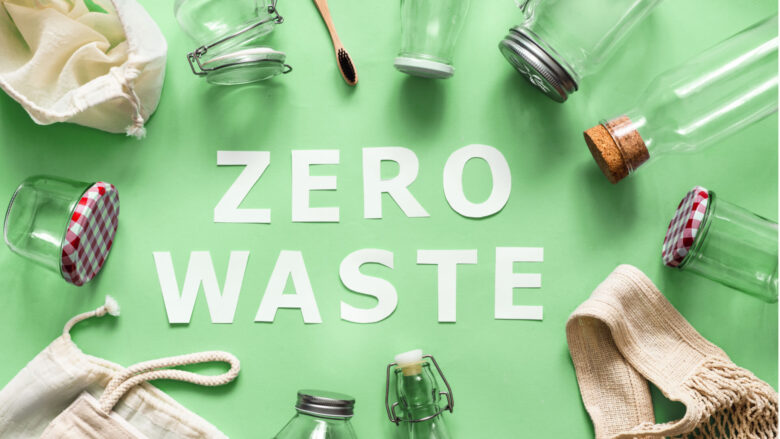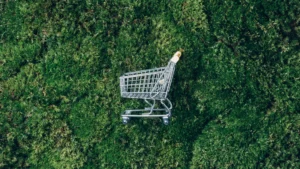A waste-free lifestyle doesn’t require an overnight lifestyle change. This sustainable approach reduces landfill waste by rethinking how we consume, reuse, and dispose. By making small, conscious adjustments in your daily life, you can reduce your environmental impact and save money.
A waste-free lifestyle means saying no to things you don’t need, using less, reusing what you consume, recycling what you can’t, and composting what’s left over. These guidelines cover everything from grocery shopping to household management, making sustainable living both feasible and enjoyable.
Understanding your Consumption
Understanding your consumption patterns is essential for a waste-free lifestyle. Most people start by measuring their weekly waste. Please take a week to review your waste and recyclables, and identify the items you dispose of most frequently. Common culprits include disposable items like coffee cups and plastic bags, food wrappers, and excessive packaging. Once you’ve identified these trends, you can implement targeted, effective improvements. If you’re seeing a lot of takeout, investing in reusable packaging and cooking at home more often becomes a priority.
This awareness extends beyond physical waste and encompasses the lifecycle of the things you bring home. Consider the origins of products, how they’re made, and how they’re discarded. This shift in mindset will naturally favor products with less packaging, a longer lifespan, and easier disposal methods.
Start Simple
Start small, with small actions to build momentum for your zero-waste journey without overwhelming your daily life. Start with everyday items that you can easily replace with sustainable alternatives. Replace paper towels with washable ones, plastic shopping bags with cloth or canvas bags, and single-use bottles with reusable ones. These changes require minimal effort and can make an immediate difference in your weekly waste output.
Removing single-use items from your home is another excellent place to start. Stop using disposable razors and start using safety razors, soap, and bamboo toothbrushes in your bathroom. Replacement items last longer than disposables and become more valuable over time.
Reduce Food Waste
Most households can minimize their environmental impact by reducing food waste. Given that Americans consume 40% of their meals, achieving zero waste is crucial. Plan your meals and stick to your grocery list before you go grocery shopping to avoid overbuying. Learn which fruits and vegetables should be refrigerated and which should be kept at room temperature, and how to use appropriate storage containers to prevent spoilage.
Use leftovers for cooking whenever possible. Leftover vegetables can be used in soups or stir-fries, vegetable peels and herb stems can be made into delicious broths, and overripe fruit can be made into delicious smoothies or baked goods. After food is processed, nutrients are returned to the soil instead of generating methane in landfills.
Shopping for the Environment
Rethinking your shopping habits can significantly reduce waste. Choose stores with bulk containers for dry goods like grains, nuts, and spices; bring your own containers; and buy only what you need. Support businesses that reduce packaging or offer packaging-free options. Many supermarkets have refill stations for cleaning products, personal care products, and beverages. Farmers’ markets promote local agriculture and offer fresh produce without plastic packaging.
When purchasing non-food items, prioritize quality over quantity. Choose durable products over cheap ones that require frequent replacement. Research businesses that offer product repair or recycling programs to extend the life of your products.
DIY and Repurposing
Making your own products and repurposing old items can reduce waste and save money. Simple ingredients like vinegar, baking soda, and essential oils can be used to make various household cleaning products without plastic packaging or harsh chemicals.
Take a fresh look at your daily waste. Glass jars can be used for storage, old T-shirts can be washed, and cardboard boxes can be used to organize drawers and closets. Pinterest and YouTube are full of creative projects that transform waste into treasures. Plant a small herb garden with celery and scallions. This method reduces food waste and supermarket packaging while ensuring fresh ingredients. Apartment dwellers can have a waste-free windowsill garden.
Community Involvement
Zero-waste living is easier and more successful when your community promotes sustainability. Share ideas, information, and encouragement with local zero-waste groups on social media or at community centers.
Organize or participate in a neighborhood swap where neighbors can exchange unwanted items. These events keep valuable items in circulation and allow people to find them without having to buy new ones. Book swaps, clothing swaps, and tool banks can help promote zero waste and build community. Encourage local waste reduction. Ask local businesses for bulk containers or reduced packaging, support restrictions on single-use items, and promote recycling and composting programs in schools and workplaces.
Overcoming Obstacles
Anticipating obstacles helps you maintain momentum on any zero-waste journey. Sustainable solutions may require more planning or time than disposable options, so convenience can be a major challenge. Develop backup plans for different situations to stay flexible. Keep reusable bags in your car and purse, keep spare containers ready for emergencies, and look for zero-waste options at frequent destinations.
Sustainable products have a higher initial price, which can lead to budget challenges. Focus on long-term savings and upgrade gradually as your budget allows. Because sustainable products last longer, many zero-waste products can save you money.
Making Zero Waste Your New Normal
Success in zero-waste living depends on small actions, not on perfecting every concept. Start small and gradually build sustainable habits. Progress is more important than perfection. Refusing every plastic bag, planning every meal to reduce waste, and reusing every item helps the planet. Individual adjustments, combined with those of others, can generate the collective power needed to address environmental problems.
Start with one small change today and let your success inspire the next. Zero-waste living is about making conscious choices that will benefit your family and the environment for years to come.
FAQs
1. Can I save money by living zero-waste?
Reusing, reducing food waste, and shopping less for groceries can save most people $1,000 to $3,000 per year. High-quality products usually pay for themselves within 6 to 12 months.
2. Kids and Zero-Waste: Is It Possible?
Absolutely. Kids love it when zero-waste is promoted as environmentally friendly. To reduce food waste, you can use reusable lunchboxes and involve children in meal preparation.
3. What should I do with the non-zero-waste products I have?
Instead of buying “zero-waste” alternatives, you can use them until they break. Consistently using existing resources is the most sustainable approach.
4. How can I achieve zero waste while traveling?
Pack a zero-waste kit with a water bottle, cutlery, and containers. To avoid worrying about supplies, find bulk stores and farmers’ markets at your destination.




